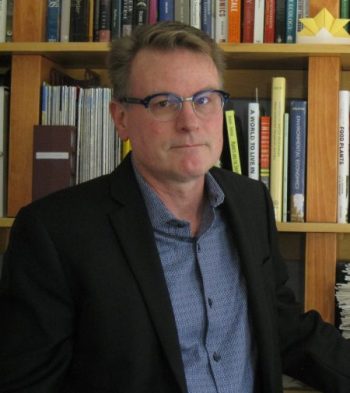
- This event has passed.
01/11/24: Bill Currie

Please join us for a Great Lakes Seminar Series – subscribe!
Time: 11:00-12:00 pm EDT
Location: NOAA Great Lakes Environmental Research Laboratory, Lake Superior Hall and Virtual
Presenter: Bill Currie – Professor and Associate Dean for Research and Engagement in SEAS, University of Michigan
Title: Plant community dynamics linked to ecosystem biogeochemistry in Great Lakes coastal wetlands: modeling for both basic understanding and management applications
About the presentation: Linking plant community dynamics to ecosystem processes has long been a central theme in ecological modeling. In this seminar, Bill Currie will present the development and applications of the Mondrian model, which was designed to link across four levels of organization in coastal wetlands: individual plant physiology, plant population dynamics, plant community shifts including invasive species, and ecosystem biogeochemistry including C, N and P cycling. Mondrian is an individual-based model in which spatially-explicit plant competition for resources causes emergent population and community dynamics, which respond to wetland N and P inflows while also driving ecosystem N and P cycling including nutrient retention. At the same time it integrates the effects of dynamic water levels, hydroperiod, and water residence time on both plant survival and ecosystem biogeochemistry, including decomposition, C storage, nitrification and denitrification. It has been used to study clonal plant competition broadly from a basic-science perspective as well as the integrated effects of water level and nutrient inflows on the joint outcomes of wetland C budgets and the success or failure of plant invasions in Great Lakes coastal wetlands. The model has also been used in an adaptive management framework to simulate the outcomes of management practices including burning, mowing, and herbicide to control invasive cattails and Phragmites. The Mondrian model was designed to be highly flexible for use by different research groups for a range of research questions and is available open-source.
About the speaker: Bill Currie is a Professor and Associate Dean for Research and Engagement in SEAS. He is also Co-Director of the Schmidt AI in Science Postdoctoral Fellowship Program at the Michigan Institute for Data Science (MIDAS). Previously, he chaired the Provost’s Faculty Transition Team to plan the new School for Environment and Sustainability, which opened its doors in 2017. Currie is an elected Fellow of AAAS for his work in ecosystem simulation modeling, in which he models forests, human-dominated landscapes, wetlands and coastal ecosystems, biogeochemistry, and water quality. He collaborates with investigators across a range of fields from wildlife conservation to economics, civil engineering, and urban planning to understand human-environment systems. He is PI on the grant to launch the SEAS Sustainability Clinic in Detroit. Currie teaches sustainability using a variety of case studies drawn from the Great Lakes region.
**Registration is not required**
_____________________________________________________
IMPORTANT VISITOR INFORMATION
All seminar attendees are required to receive a visitor badge from the front desk at the NOAA Great Lakes Environmental Research Laboratory facility. Attendees need to present a valid U.S. photo ID or green card. If you are a Foreign National, we encourage you to attend virtually. For questions regarding building access, please email Margaret Throckmorton at [email protected]. Additional questions? Contact Margaret Throckmorton: [email protected]; visit ciglr.seas.umich.edu for more information.
